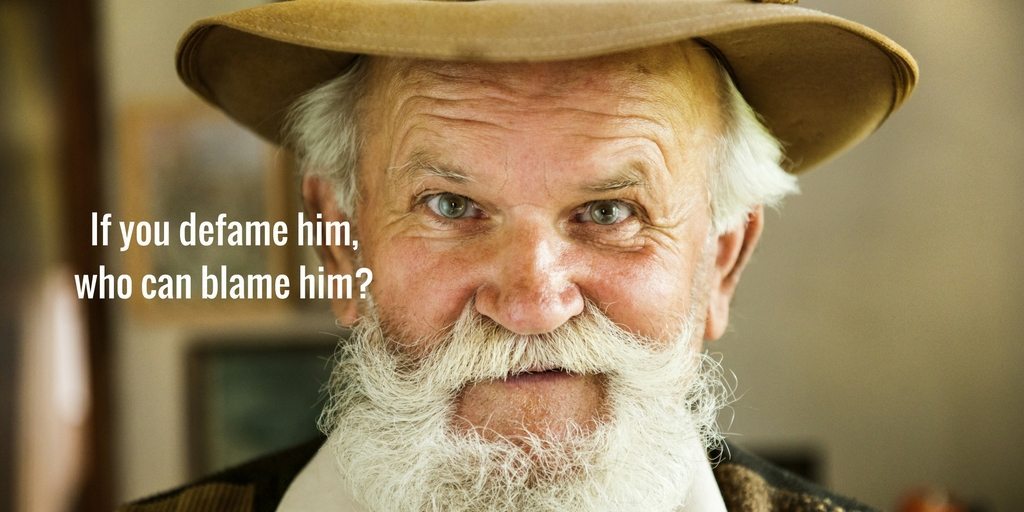 How Documentary Filmmakers Avoid Defamation Lawsuits
How Documentary Filmmakers Avoid Defamation Lawsuits
If there’s one thing a documentary filmmaker must be wary of, it’s a lawsuit.
Okay, that’s a little depressing, but this shouldn’t stop producers from telling the story they want to tell. This blog will arm you with five tools to protect yourself and your film.
At the end of the day, producers and filmmakers alike want the same thing- to tell their story. This story is sometimes a very different story than your documentary subject’s version of the story.
Edit With Care
In a recent $13 million lawsuit against Katie Couric, Stephanie Soechtig, and Epix, the documentary film Under the Gun is ironically under the gun by a pro-gun group. The group contends that deceptive editing made the subject appear stumped and under-prepared to answer questions about background checks.
As stated in the Hollywood Reporter, “Under the Gun portrays VCDL members Daniel Hawes and Patricia Webb in about nine seconds of silence in response to Couric’s question, but according to the plaintiffs, they actually provided an answer.”
Meanwhile, producers constantly have to argue that intentional manipulation and misleading footage is NOT a hallmark of documentary filmmaking. With an influx of entertainment-based reality shows with less than scrupulous editing choices, the public views these popular shows as semi- factual. A smart and savvy viewer will have cynicism about the veracity of these types of shows. Sadly, many viewers lump documentary filmmakers into the same category as reality tv.
Call it what you want: enhancement, alterations, improvements, re-creations. Filmmakers everywhere are under fire for manipulating footage to push their side of the story.
Have a Strategy for Success
To move your film from production to distribution, it’s important producers find a way to take advantage of best practices.
But how you ask? Easy.
In a world full of lawsuits, be like Sasha Baron Cohen.
Sasha Baron Cohen is known for avoiding lawsuits. But, he refuses to take it easy on folks that dared to allow themselves on camera.
Filmmakers strive to move beyond simple facts to help show the larger meaning of the story for society. Still, defamation lawsuits most often claim a misrepresentation of the truth or a hateful agenda.
The point is that creating a plan for avoiding lawsuits and protecting your film before its release is very beneficial.
In fact, today we will share our top tips on how to avoid lawsuits.
How Filmmakers Can Avoid Being Sued
Keep reading to discover how you can avoid lawsuits, protect your film, and tell the story you want to tell:
Be Honest with Your Subjects. As noted by Tom Isler in the Docs & the Law Blog, “The more honest filmmakers can be with their subjects, the more likely everyone is to be on the same page. Still, it requires some skill to disclose enough about the vision for the project to be truthful, without inhibiting or discouraging subjects from participating.”
Prove the Truth. If your remarks hurt someone’s reputation, but your remarks are true, you are generally in the clear. Our society values truth more than a person’s reputation. The tricky part is proving that it’s true. Gather evidence, keeps close records, and always get it in writing.
Don’t Act with Malice. If you intentionally defame your subject or show a reckless disregard for the truth, a judge will not fall on your side of the argument. So don’t be a mean girl. Or boy.
Get a Bulletproof Release Form. Sasha Baron Cohen’s film Borat has been sued by many subjects over the years, and no one has won. Here’s more on how he did it.
Get an attorney review of clearance procedures. For less than the cost of taking your closest friends to Wolfgang Puck for a nice meal, a seasoned entertainment attorney will view your finished film or television project while cross checking it against your legal documents. This will ensure you have every necessary agreement, with the proper language, in place to protect what you will distribute to the public.
Keep Track of Your Clearance Procedures
When you make a film, there are a lot of procedures you must follow. That’s why we created this free checklist.
The idea isn’t to be paranoid, but it’s important to protect your film, your image, and your work.
We can’t promise that the five steps above will make you and your documentary film bullet-proof. We can say it’s the best way to mitigate your risk and protect yourself.
And protection from lawsuits, as Borat would say, IT’S A VERY NICE!

